Jiangsu Tourism: Walking into the Water Town of Luzhi Ancient Town (Photo)
Luzhi Ancient Town Water Town in Jiangsu Province is the eighth Jiangnan Water Town Ancient Town after reporters visited Zhouzhuang and Tongli in Jiangsu Province, Wuzhen, Nanxun, Xitang and Xinshi in Zhejiang Province, and Zhujiajiao in Shanghai. When most people first see the word "" in "Luzhi", they will be fooled by this rare word. What should they read for this word that has one more dot than "use"? After verification, we learned that it was the fourth sound of lu and the sound was "Lu".
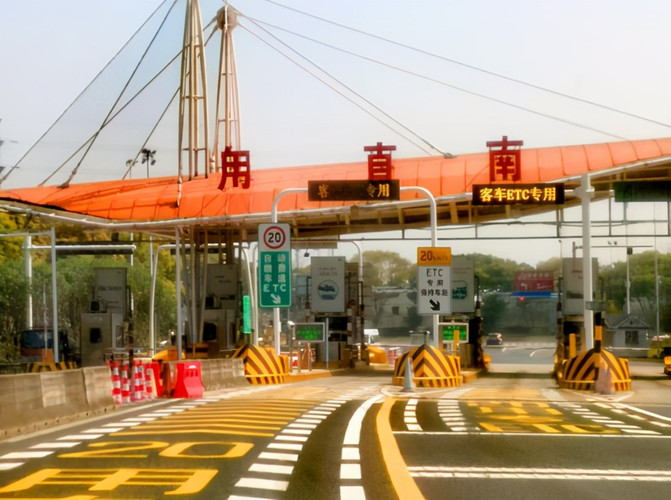
Arrive at Luzhi (Photo: Feng Ganyong)
On the morning of March 29, 2021, after attending the "3rd Guan Baocong Ceramic Art Appreciation Exhibition" held at the Shanghai Building, the reporter set out from the Shanghai Jinjiang Hotel where he stayed and drove more than an hour to the ancient town of Luzhi, Jiangsu Province with Shanghai friends Wang Guojian, Huang Qiaomei, Zhang Youshi, Qiu Zelian, Liu Feng, Wang Jinkui, Jin Fukang, Xu Heyin, Luo Jianqing, Ye Renmin, Zeng Weixin, Wang Jue and others.
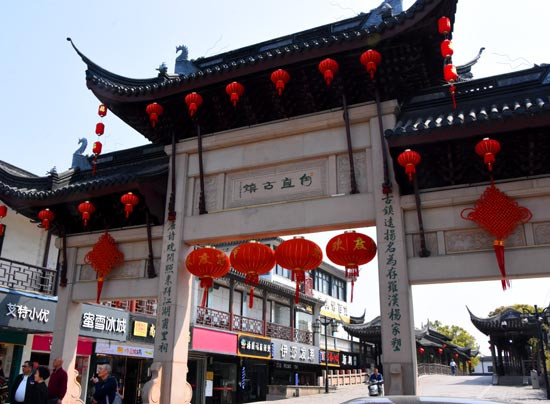
Ancient Town Stone Arch (Photo: Feng Ganyong)
Jiangsu Luzhi Water Town is the same age as Suzhou Ancient City. It is an ancient town with a history of more than 2500 years. Its long history has given birth to the rich and splendid culture of the ancient town Luzhi. It is one of the first batch of famous historical and cultural towns in China.
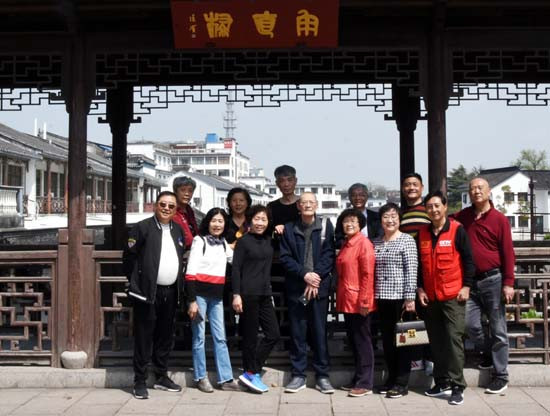
Group photo taken at the covered bridge of Luzhi Ancient Town
Luzhi is located 25 kilometers southeast of Suzhou City. It reaches the Wusong River in the north, Lincheng Lake in the south, Suxin Industrial Park in the west, and Kunshan in the east. The town covers an area of 75 square kilometers. Luzhi, the first town in Shenzhou's water town, is Mr. Fei Xiaotong, former vice chairman of the Standing Committee of the National People's Congress. As an ancient town in Shenzhou's water town, Luzhi speaks highly of and praises Luzhi in Suzhou City, Jiangsu Province. This title is indeed worthy of its reputation.
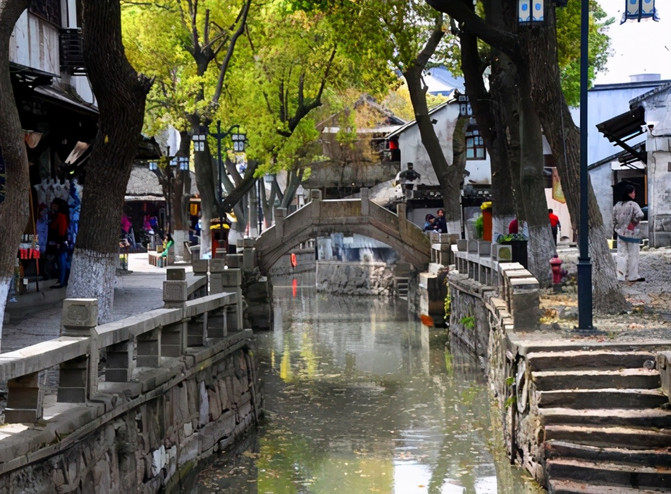
Walking into the ancient town and water town (Photo: Feng Ganyong)
Since Luzhi is a water town, it is naturally inseparable from water. The reporter and his party entered from the stone archway in the north of the ancient town and passed a long covered bridge not far away. Look around on the bridge and see the twinkling scenery. It can be said that water is the soul of Luzhi Ancient Town. This place is located in the Taihu Lake Basin. It is a typical example of a country where water is separated, the water system is surrounded by water, and the water surrounds the water. It is known as the "Hall of the Five Lakes" and the "Rush of the Six Swamps".
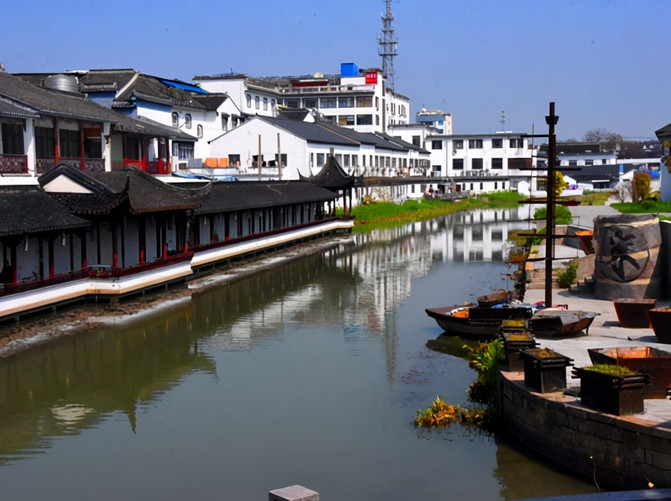
Water town and country (Photo: Feng Ganyong)
The "Five Lakes Hall" means that it faces Chenghu Lake and Wanqian Lake in the south, Dushu Lake and Jinji Lake in the west, and Yangcheng Lake in the north. "Liuze Zhi Chong" means that it has six flow channels: Wusong River, Qingxiaogang, Jiepu, Dongtang and Dazhi Port. Luzhi has a crisscross water flow, densely covered bridges, and streets. People sleep on the river. The town has a simple appearance and a secluded style.
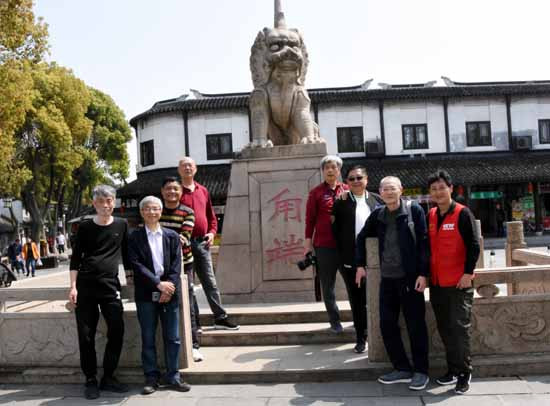
Photo taken in Luzhi Small Square (Photo: Huang Qiaomei)
The reporter and his party strolled through the ancient town to a small square with a commemorative stone marked with the "Luzhi". From here, there are many water-based paths leading into the ancient town. The narrow waterside streets and alleys are lined with small shops and restaurants selling various kinds of goods. They are very lively and exude a strong atmosphere of ancient town culture.
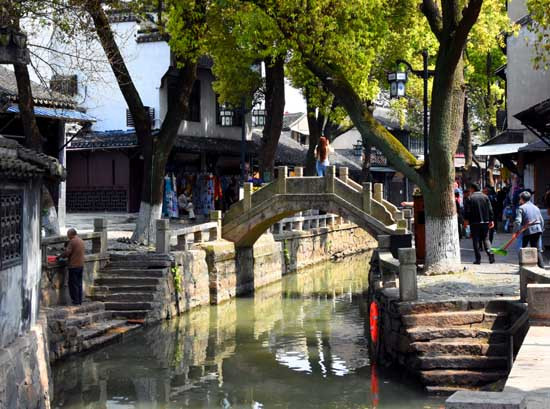
Ancient Town Shiqiao (Photo: Feng Ganyong)
Wandering through the ancient town, people will see Luzhi beautiful water and beautiful bridges. On the 5.6-kilometer-long river course in Guzhen District, 72 and a half small bridges in various forms have been erected across the Yangtze River in history. There are large stone bridges with holes and small stone bridges with single holes. Spacious arched bridges, narrow stone bridges, double bridges, sister bridges, key bridges, half-step bridges, etc. It can be said to be "green waves, east, west, north and south waters, red railings and seventy-two-half bridges."
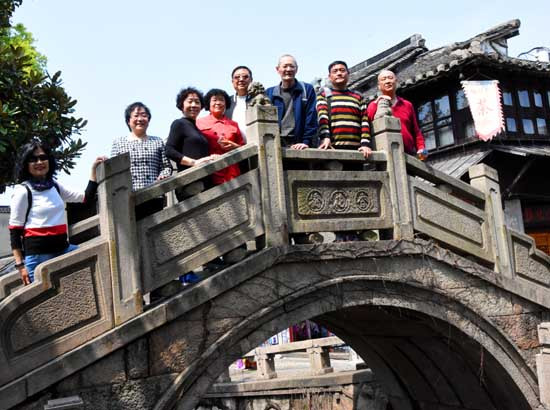
Photo taken by Xianghua Bridge (Photo: Huang Qiaomei)
Luzhi Ancient Town is known as the "Bridge Capital" because of its many bridges. There are now 41 stone arch bridges dating from the Song, Yuan, Ming and Qing dynasties within a square kilometer. With different bridges and unique shapes, it is not an exaggeration to be known as the "Bridge Museum". Bridge streets in the town are connected, rivers are connected, and scenic spots and historic sites are dotted everywhere.
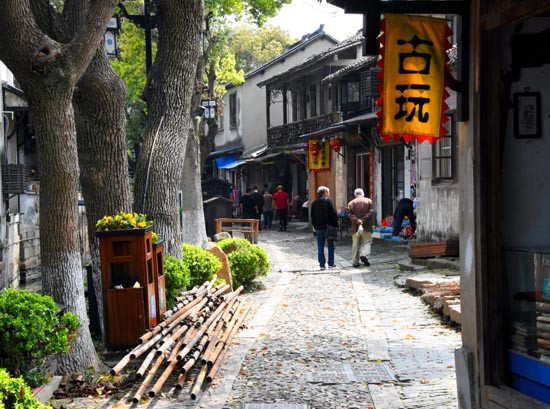
Streets and alleys in ancient towns (Photo: Feng Ganyong)
In addition, ancient ginkgo is also a major feature of Luzhi Town. There are 7 ginkgo trees in the town. Mr. Ye Shengtao, a famous educator and writer, was buried next to four ginkgo trees because of his love for ginkgo trees. The local government also built a special Ye Shengtao Memorial Hall for people to visit.
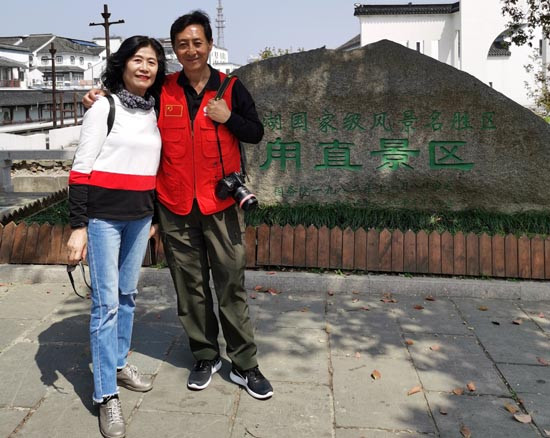
Photo taken by Lu Zhi (Photo: Huang Qiaomei)
But unfortunately, I wanted to pay a visit to the Ye Shengtao Memorial Hall. Unexpectedly, because the memorial hall was located in Baosheng Temple, the entrance ticket was as high as more than 70 yuan, so I had to give up. The "Ye Shengtao Memorial Hall" in the ancient town of Mingming has become a patriotic education base in Jiangsu Province, but the local arrangement is really puzzling...
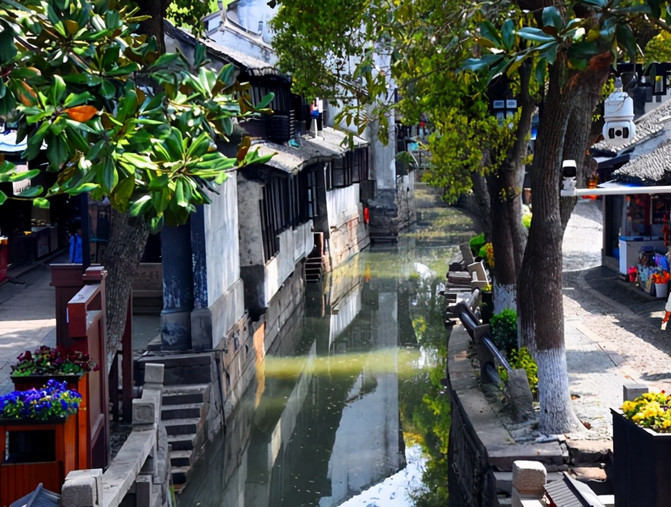
People with Water Pillow (Photo: Wang Jue)
Today, Luzhi Ancient Town still has streets paved with gravel and granite. On both sides of the deep alleys are ancient builders with black tiles and white walls, wooden doors and wooden windows, and wide beams and ridges. Most of them were built in the Ming and Qing Dynasties. There are 58 alleys in Guzhen District, with a maximum depth of 150 meters, which is relatively rare. There were an endless stream of small boats coming and going on the river bed in an orderly manner.
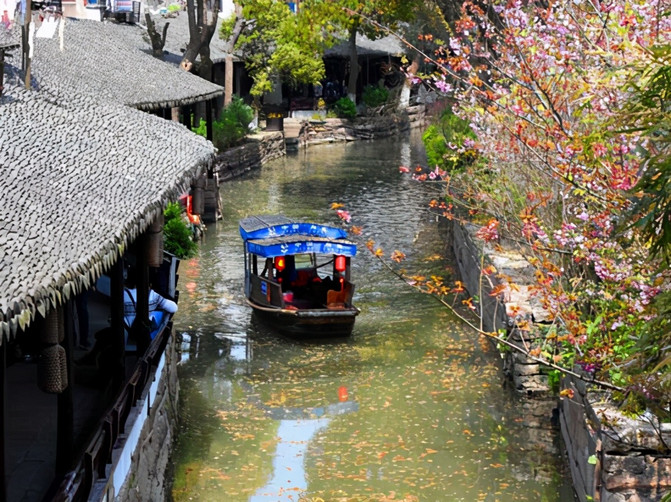
A small boat swinging (Photo: Wang Guojian)
Wandering here, you will find that Luzhi Ancient Town is built along the water, with front streets and back rivers, and people sleep on the river. Stroll through the ancient town and enjoy the scenery of the town. Watching the embankment of the ancient bridge, the rocking cruise ship and the small bridge and flowing water complement each other. It really has a unique charm and makes people feel unforgettable.
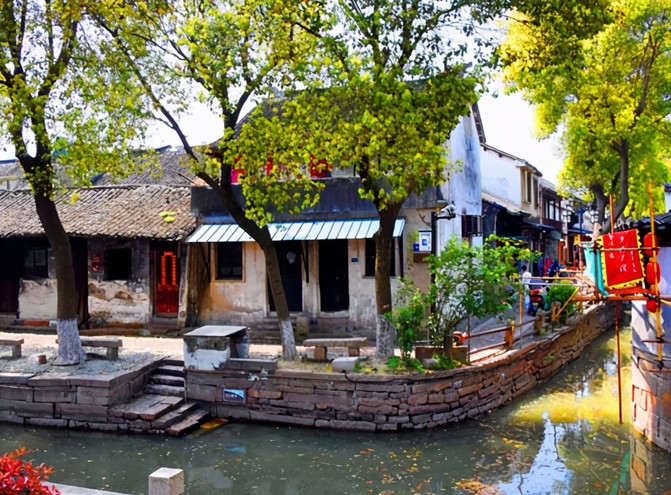
Ancient town waterside houses (Photo: Feng Ganyong)
When people come to Luzhi, many people will ask such a question: Where did the title "Luzhi" come from? According to "Fuli Chronicles", Luzhi was originally named Fuli, and got its name because of the existence of "Fuli Tang" in the west of the town. Due to the fact that there was a Zhiport in the east of the town, which led to Liuchu, and the water flow was as cool as the word "", it was renamed "Luzhi".
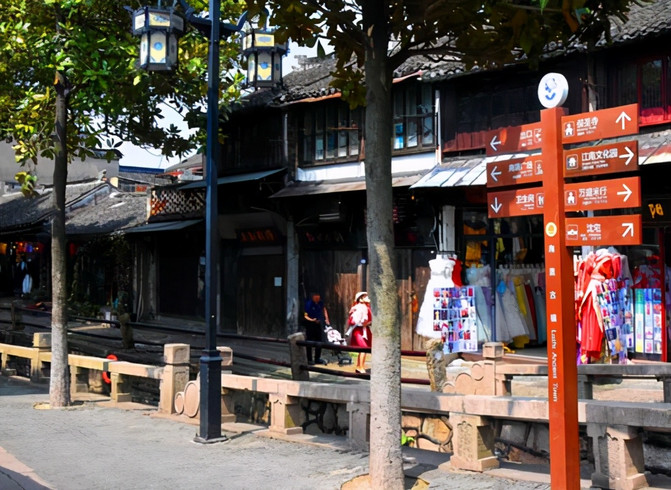
Corner of the ancient town (Photo: Feng Ganyong)
According to historical data, the ancient unicorn beast "Yuduan" inspected Luzhi, a path in the land of China, and saw that it was a treasure land of feng shui, so it stayed in Luzhi for a long time. Therefore, in the history of Luzhi, there have been no wars, no droughts and floods, and people have enough food and clothing every year.
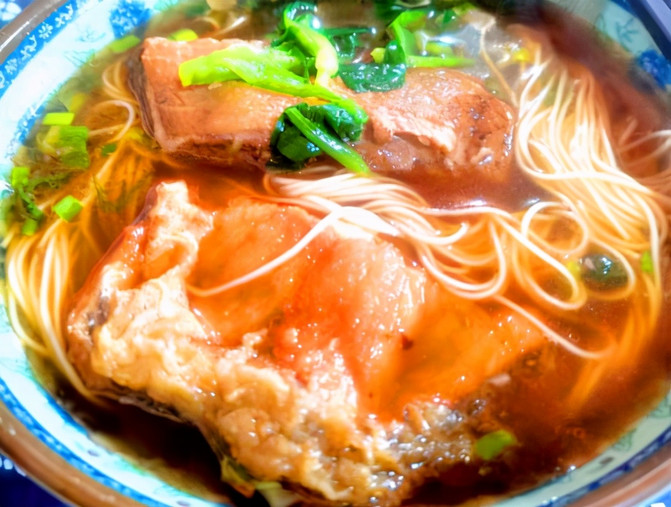
Special Olympic stove noodles (Photo: Feng Ganyong)
The thousand-year-old Luzhi Ancient Town has an ancient history and culture. The scenic spots, ancient bridges, ancient streets, ancient houses and ancient ginkgo trees with a history of more than 1300 years are all amazing.
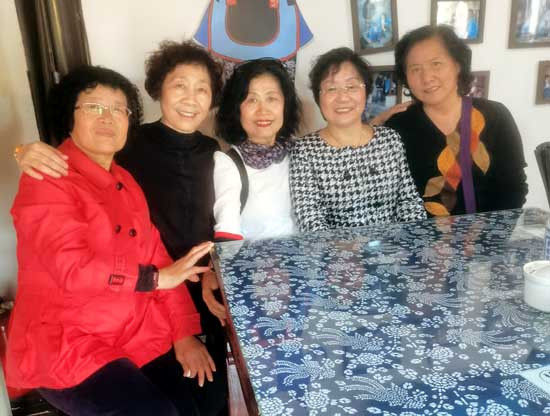
Photo taken of dining in the noodle shop (Photo: Feng Ganyong)
I heard that the Olympic stove noodles in the ancient town were very distinctive, so I came to a small shop called Langqiao Olympic stove Noodle Restaurant on the water bank to taste them. The standard serving of duck meat and abalone Ozao noodles in the store is very delicious. The tender duck meat and large pieces of fish steak were originally thought to be very expensive, but the post-meal payment was only 30 yuan per bowl. It can be used in tourist attractions. It's really good to have good quality and cheap special meals. Compared with the regret of not being able to visit the Ye Shengtao Memorial Hall in a temple due to high ticket prices, the reporter felt somewhat relieved... But no matter what, the trip to the ancient town of Luzhi still gained a lot and once again left an unforgettable life. Beautiful memories. (Photo and text: Feng Ganyong)
Previous Article:I like the taste of old Shanghai and prefer the classic hotels in Shanghai
Next Article:Oriental Geological Science Museum, talks about vicissitudes in various ways (2)--Shanghai 3rd (7)
